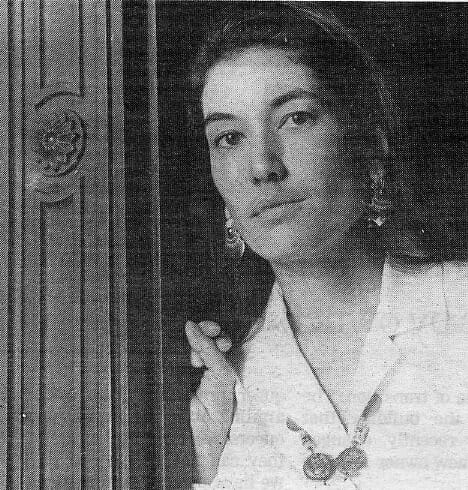AS DIANA AKIYAMA’s sisters lined up in their childhood church pew and sang from an Episcopalian prayer book that seemed to her a mere exercise in “groveling,” a rebellious Akiyama just stood silently during the hymns she considered nonsense.
But when the young Akiyama challenged her parish rector on the Bible’s validity, he turned her defiance inside out by refusing to supply pat answers to the questions she posed. Now, with her white robes coursing around her small form, Episcopalian priest Akiyama projects an unwavering voice of calm to the nondenominational Protestant congregation at Stanford University’s Memorial Church.
Akiyama, a spiritualist who has come to cherish the biblical parables for their veiled, multilayered mystery, grew up in the large Japanese-American community of a small Oregon town. She originally considered a career in psychology, but the role of spirituality in recovery from drug and alcohol addiction fascinated her. As a drug counselor, she conferred with 13-year-old girls who’d been told by religious authorities they were forever beyond redemption for the sins they’d committed. Akiyama was appalled.
And now, as an Episcopal priest, she continues to battle abuses of authority. Her adviser at the University of Puget Sound sexually harassed her, she says, but a naive Akiyama didn’t conclude as much until years after transferring to the University of Oregon. Akiyama brings a feminist critique to the pulpit as well as much-needed attention to abuse and harassment at Stanford.
Akiyama, whose husband is a member of the Baha’i faith, wraps herself in a resplendent tapestry of belief systems. In 1989, she was ordained at a Stanford ceremony which violated Episcopal church tenets by involving holy people from other traditions, including Balinese and Armenian Orthodox priests.
Akiyama recently led a holy commitment ceremony in the church for a gay couple, recognizing their divine spark.
The narrow thinking of some of the hostile mail which followed frightens her. “They believe they are protecting some divine sacred being and they’re wounding a human being to do that,” she says of her critics. “That’s not my conception of God’s relationship with human beings.”
The mother of one of the men asked Akiyama if she considered their relationship valid. “I said, ‘Definitely, yes. God is smiling on this.’ A look of relief went over her face. She believed in my priesthood enough to ask the question and accept my answer.”


